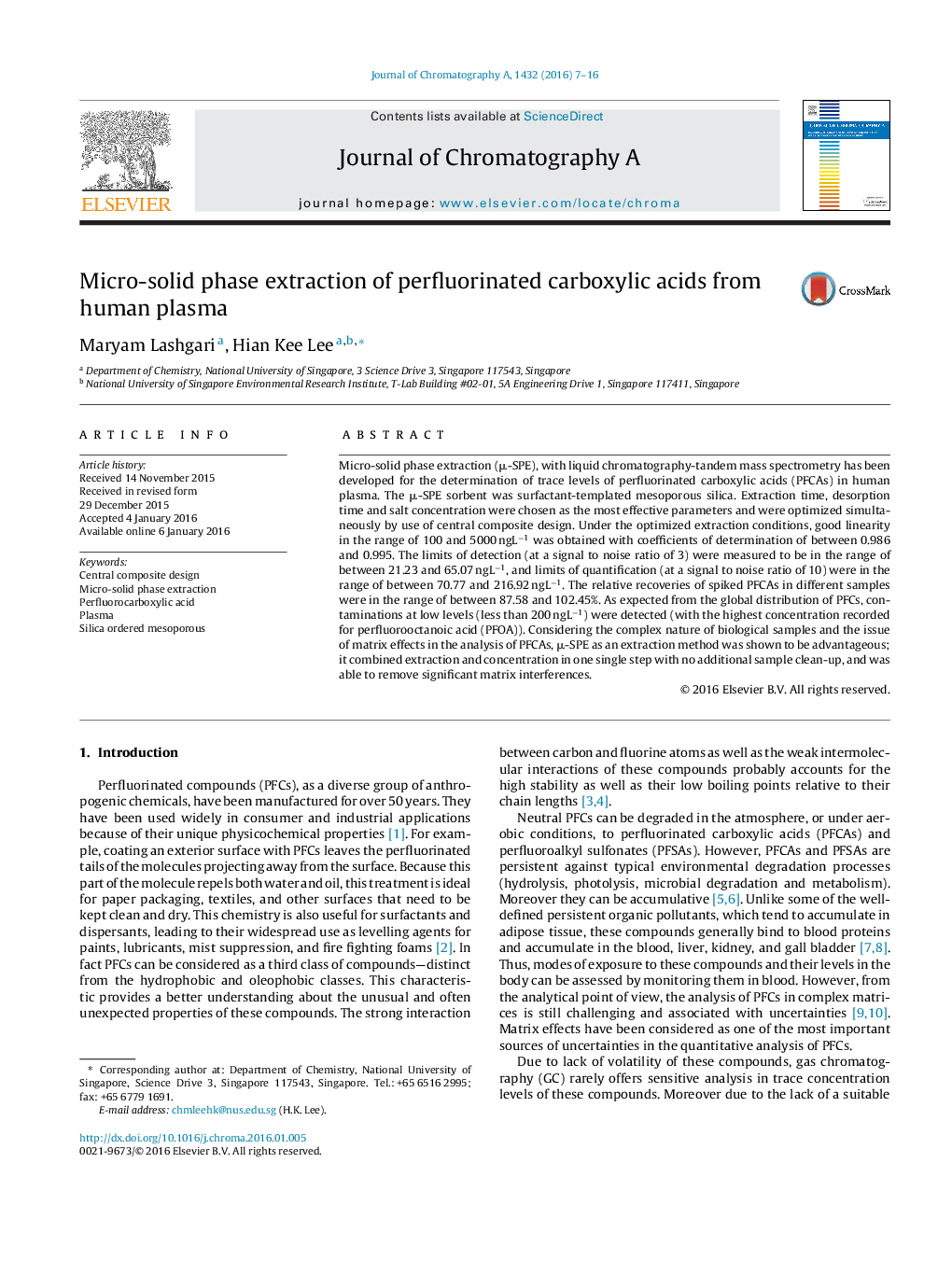| Article ID | Journal | Published Year | Pages | File Type |
|---|---|---|---|---|
| 7610263 | Journal of Chromatography A | 2016 | 10 Pages |
Abstract
Micro-solid phase extraction (μ-SPE), with liquid chromatography-tandem mass spectrometry has been developed for the determination of trace levels of perfluorinated carboxylic acids (PFCAs) in human plasma. The μ-SPE sorbent was surfactant-templated mesoporous silica. Extraction time, desorption time and salt concentration were chosen as the most effective parameters and were optimized simultaneously by use of central composite design. Under the optimized extraction conditions, good linearity in the range of 100 and 5000 ngLâ1 was obtained with coefficients of determination of between 0.986 and 0.995. The limits of detection (at a signal to noise ratio of 3) were measured to be in the range of between 21.23 and 65.07 ngLâ1, and limits of quantification (at a signal to noise ratio of 10) were in the range of between 70.77 and 216.92 ngLâ1. The relative recoveries of spiked PFCAs in different samples were in the range of between 87.58 and 102.45%. As expected from the global distribution of PFCs, contaminations at low levels (less than 200 ngLâ1) were detected (with the highest concentration recorded for perfluorooctanoic acid (PFOA)). Considering the complex nature of biological samples and the issue of matrix effects in the analysis of PFCAs, μ-SPE as an extraction method was shown to be advantageous; it combined extraction and concentration in one single step with no additional sample clean-up, and was able to remove significant matrix interferences.
Related Topics
Physical Sciences and Engineering
Chemistry
Analytical Chemistry
Authors
Maryam Lashgari, Hian Kee Lee,
